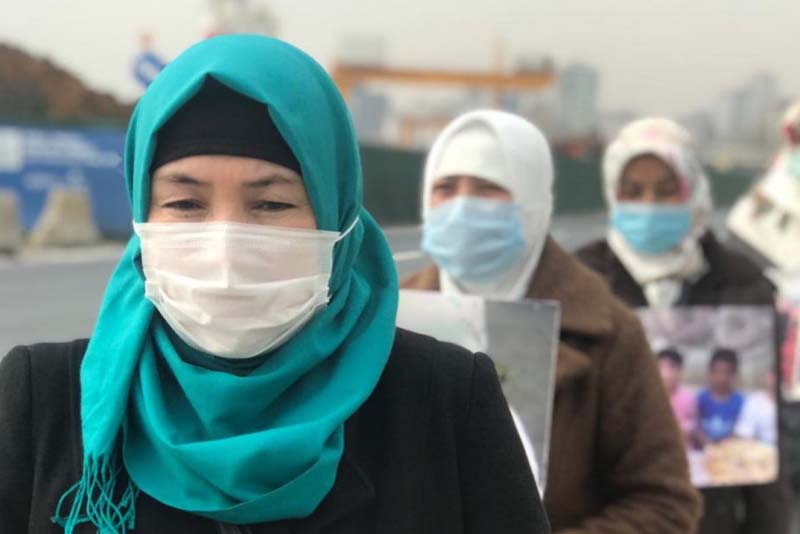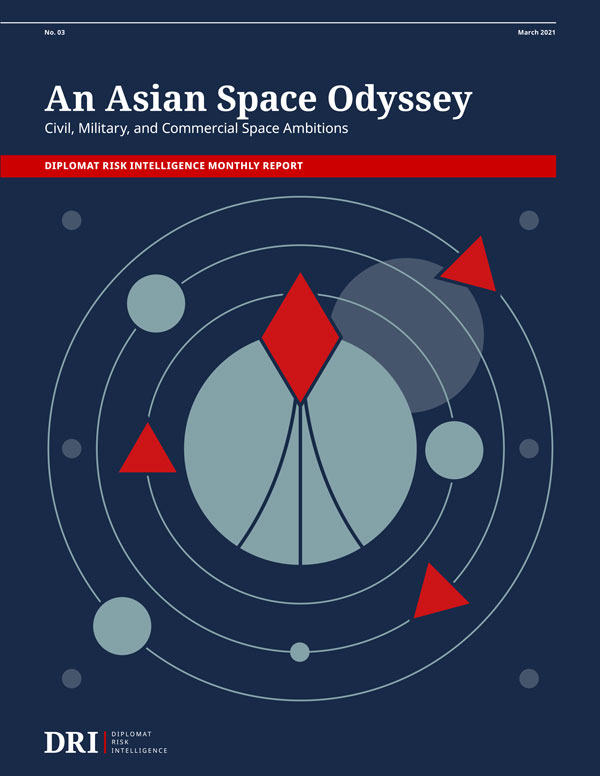| Welcome to the latest issue of Diplomat Brief. This week our top story looks at the Uyghur families torn apart by China’s crackdown in Xinjiang. We also have an interview with Dilmurad Yusupov, a Ph.D. researcher at the Institute of Development Studies (IDS) at the University of Sussex, on the importance of – and continued barriers to – NGOs in Uzbekistan. |
| Story of the week |  | SOCIETY The Missing Uyghur ChildrenWhat Happened: China’s crackdown in Xinjiang saw hundreds of thousands of Uyghurs detained in internment camps for compulsory “education.” Some managed to flee abroad, but many parents were unable to get passports for their young children and left them behind, planning to bring them along later. As the crackdown worsened, that became impossible, even as more and more of the relatives caring for these children were locked up. From Turkey, Uyghur parents describe the anguish of not knowing where their children are, or who – if anyone – is caring for them. Our Focus: “What would it take for people to act – do we have to kill ourselves? I have never seen my children, not even on Chinese state social media, since we lost contact. I don’t know what has happened to them or what their situation is and that is what’s killing me the most,” Maimatimin Buweiamina, a Uyghur who fled Xinjiang for Turkey in 2016, told The Diplomat. “I don’t know if my children are dead or alive.” What Comes Next: Uyghur parents have been holding regular vigils, carrying pictures of their missing children, in Istanbul and Turkey. So far, however, the Chinese government has ignored their demands for information, much less a reunion with their children. Read this story |
| Behind the News | INTERVIEW Dilmurad YusupovDilmurad Yusupov, a Ph.D. researcher at the Institute of Development Studies (IDS) at the University of Sussex, on the count of Uzbekistan’s NGOs: “The Ministry of Justice always boasts that the number of NGOs in Uzbekistan has been increasing rapidly in recent years and reached 10,000. But as people say there are lies, damn lies, and state statistics!” Read the interview |
| This Week in Asia | Northeast Asia Xi at the U.S. Climate Summit?On Thursday and Friday, U.S. President Joe Biden will host 40 world leaders in a virtual summit on climate change. China’s Xi Jinping is among the invitees, although China’s government played coy until the last minute over whether he would accept. The summit follows a fruitful visit to Shanghai last week by U.S. climate envoy John Kerry, where both sides pledged to continue cooperation on the issue. Still, expect some jabs from Xi as tensions remain high. Find out more | South Asia Under Siege from Islamists, Pakistan's Government Inches Toward CapitulationFollowing a week of violence after radical Islamist Saad Hussain Rizvi was arrested in Lahore on April 12, the Imran Khan government has decided to negotiate with Rizvi’s Tehreek-e-Labbaik Pakistan (TLP). On April 20, the Khan government tabled a resolution in front of the National Assembly, following which the assembly debated whether to expel France’s ambassador to Pakistan, a core TLP demand. Meanwhile, Rizvi was released from prison the same day. Observers note the Khan government's decision to fold in front of violent Islamists sits uneasily with the country's grand foreign policy pivot plans. Find out more | Southeast Asia ASEAN to Meet on Myanmar CrisisOn Saturday, leaders from the Association of Southeast Asian Nations (ASEAN) will convene a special summit on the crisis in Myanmar. Coming nearly three months after the country’s military seized power in a coup, the summit represents the culmination of diplomatic efforts by several ASEAN member states to address the increasingly unstable situation in the country, but it remains to be seen whether the bloc will be able to rise above its previous statements of concern. Find out more | Central Asia Please Don't Take Kyrgyz President Japarov's Medical AdviceRecently, Kyrgyz President Sadyr Japarov recommended a poison commonly known as wolf's bane to treat COVID-19, sparking immediate outcry. Facebook took down his post advertising the solution but Kyrgyz hospitals have reported admitting patients who tried it out. Meanwhile, authorities in the Kyrgyz capital have again decided to cancel Victory Day celebrations, usually held on May 9, because the pandemic remains a public health risk. Find out more |
|  |





